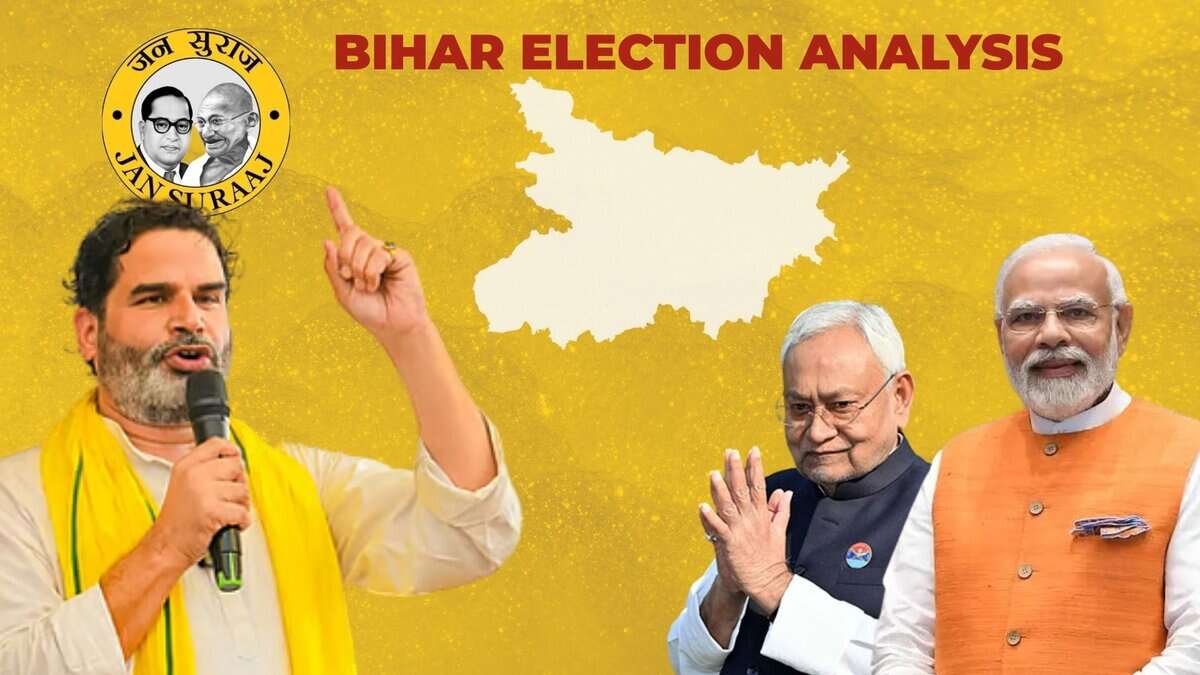
Almost all prepoll surveys got it wrong about the extent of the NDA victories. But they got one thing right: Prashant Kishor’s poor performance. They, however, largely missed the reasons for his very poor show. All opinions by pundits provided their reasons only after the results. That hasn’t fazed leader of the Jan Suraaj Party (JSP) for he has donned new robes now.
Prashant Kishor has to reinvent himself further. Morphing into a politician on the ground from the earliest avatar of an election strategist was not enough. Of course, he was a reputed political strategist. He has to find new ways to cut through entrenched politics of caste. He would be correct if he realises that he needs to build a party structure.
With not a seat in his bag, he has no role in the legislature where the Opposition is so truncated that it would not matter. Prashant Kishor now wants to work with the people and try ensuring that the NDA’s Bihar government delivered on its poll promises.
These promises are going to be a huge monetary burden on the exchequer and at one time or another, it is more likely than not will falter. These include delivering on jobs in government as proclaimed, continuing the seed money scheme – Mukhyamantri Mahila Rozgar Yojana – where, if successful, a woman gets incremental support of up to Rs 2 lakh. They have been given Rs 10,000 already.
This funnelling of Rs 10,000 per adult woman as start-up support has been a key reason, apart from assuring jobs, for the NDA victories in seat after seat. This enticement begs a question: how many women have the entrepreneurial instincts to turn the new start-ups to secure Rs 2 lakh? A small grocery store in a village or a tea shop is difficult to scale up because the purchasing power is low in Bihar.
Statistically, remittances from low-strata migrants in other states provides for about half of household incomes back home and about a quarter of the village’s income which indicates why Bihar, compared to other states, is bare-bone economy. No government has as of now planned for ensuring economic means to halt migration to other states; they power the economies of the host states.
That said, the voters who do want a substantive change opted, as always, for the here and now likely deliverables than a long-term vision of a change which includes making Bihar hospitable to investments that generate jobs in the formal sector leading to an informal support service sector. Bihar is not an aspirational state, but a state stuck in the rut, wanting only to survive. It is a state where hope triumphs over experience.
Not just Bihar but every state should run elections on the themes like the one Prashant Kishor brought up, though he failed on account of not having a structure to support an idea. I recall a conversation with a leading politician who had huge heft both in the state and the centre. I asked why political parties do not contest on bread-and-butter issues which would make possible an improvement in life for the voters.
He thought for a full minute and came up with a shocking response. “We are,” he said – I am paraphrasing his response – “politicians and political parties and not Rotary Clubs or Lions Clubs”. What mattered was power, the victories on issues, more emotional the better, and count votes all the way to the legislative bodies. “That is so even in municipal elections”, he added.
The narrative on which the Bihar elections should have been on the issues raised by the Jan Suraaj Party. Repairing the broken educational system, empowering children to a better life within the state, or if they migrated, for better jobs than what can afford only a life in a city shanty and nominal or survival incomes back home. Access to English schools with support from the government, healthcare which had a quality.



